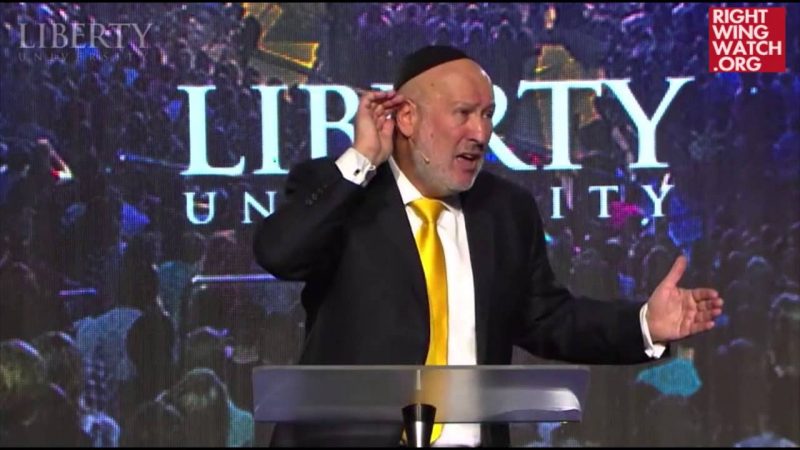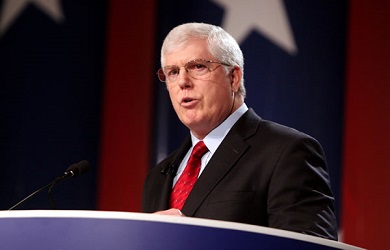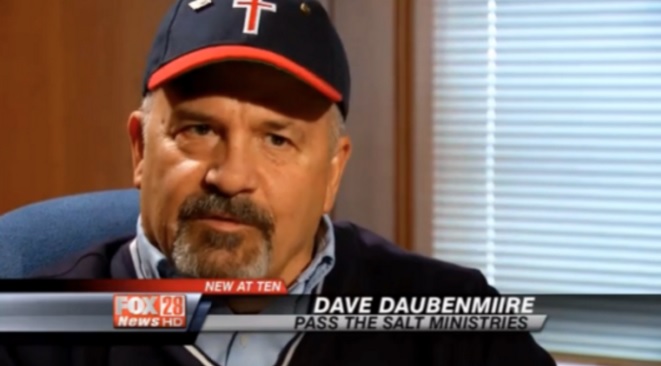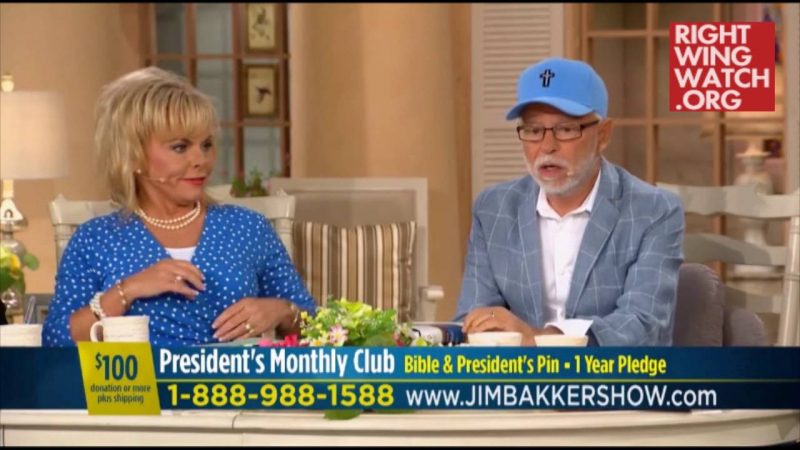The Los Angeles Times reports that the Right is working hard to mobilize millions of voters leading up to the mid-term elections in November and that some seem to be encouraging pastors to actually break federal election and tax laws in the process
Preachers “ought to put their toe right on the line,” said Mathew D. Staver, founder of Liberty Counsel, a nonprofit law firm that supports conservative Christian causes.
…
Pastors have a right to work directly for candidates on their own time, as long as they don’t use church resources. In a recent article aimed at evangelical preachers, Staver wrote that they “should feel free” to go even further and endorse a candidate from the pulpit because he thought the IRS law was unconstitutional. He repeatedly noted that the IRS had rarely sanctioned churches. The Church at Pierce Creek in Binghamton, N.Y., is the only one ever to lose its tax-exempt certification, for sponsoring newspaper ads that opposed presidential candidate Bill Clinton.
Far more often, IRS agents resolve complaints by training church leaders to avoid future missteps, said Lois G. Lerner, who directs the IRS unit for tax-exempt groups. In 2004, the IRS resolved dozens of complaints this way, including such blatant violations as churches donating to a candidate’s campaign or placing political signs on their property.
Given the slim chance of serious sanction, “I encourage pastors to exchange their muzzles for megaphones,” Staver wrote in the Rev. Jerry Falwell’s monthly newspaper, the National Liberty Journal.
In its “Tax Guide for Churches and Religious Organizations” the IRS clearly states
Under the Internal Revenue Code, all IRC section 501(c)(3) organizations, including churches and religious organizations, are absolutely prohibited from directly or indirectly participating in, or intervening in, any political campaign on behalf of (or in opposition to) any candidate for elective public office. Contributions to political campaign funds or public statements of position (verbal or written) made by or on behalf of the organization in favor of or in opposition to any candidate for public office clearly violate the prohibition against political campaign activity. Violation of this prohibition may result in denial or revocation of tax-exempt status and the imposition of certain excise tax.
…
[F]or their organizations to remain tax exempt under IRC section 501(c)(3), religious leaders cannot make partisan comments in official organization publications or at official church functions.
The IRS even offers this example of prohibited political activity and it sounds exactly like the sort of activity Staver is advocating
Example 4: Minister D is the minister of Church M. During regular services of Church M shortly before the election, Minister D preached on a number of issues, including the importance of voting in the upcoming election, and concludes by stating, “It is important that you all do your duty in the election and vote for Candidate W.” Since Minister D’s remarks indicating support for Candidate W were made during an official church service, they constitute political campaign intervention attributable to Church M.
Staver has something of a history of urging others to push the boundaries of the law in advancing the right-wing agenda – last month he called upon public school teachers to serve as “domestic missionaries” and promote Christianity in class under the guise of instruction.
As we noted then, it is a lucky coincidence that the Liberty Counsel’s primary mission is filing lawsuits in defense of those who claim to have had their religious liberties violated, because those who follow Staver’s recommendations may very well find themselves needing his legal assistance.








